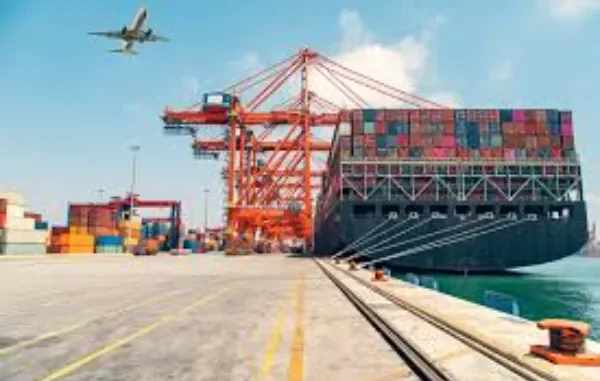

Ocean freight has anchored global trade for centuries. Container ships carrying everything from raw materials to finished products are a constant presence on the seas. This method earned its reputation for reliability by being massively scalable, cost-effective, and supported by a vast global network.
However, in the current era of fast-paced commerce, supply chain disruptions, and competitive air cargo, we must ask: Is ocean shipping still the most reliable choice? The answer depends entirely on what your business needs “reliable” to mean today.
The Unmatched Scale of Maritime Shipping
For any business not constrained by tight deadlines, sea transport is the most compelling choice because of its massive cost-saving scale and operational dependability. Here are the key benefits of global ocean freight:
1. Unbeatable cost-effectiveness
When moving goods across the world, our global ocean freight service provides unmatched cost-effectiveness through sheer scale and efficiency.
- Unmatched Capacity: A single vessel can carry over 24,000 containers—a volume impossible for air or land transport, forming the foundation of our low-cost service.
- Optimized Efficiency: Your goods are secured in standardized containers, enabling seamless, damage-free loading, unloading, and stacking across the global supply chain.
- Ultimate Cost-Effectiveness: This massive scale translates into the lowest cost per unit, making it the most economical choice for shipping heavy or low-value-density goods worldwide.
For high-volume international shipping, sea freight is the most reliable and affordable solution. When choosing a global ocean freight service, look for a partner with the network, expertise, and operational excellence to fully leverage these advantages for your supply chain.
2. Massive capacity and capability
Ocean freight is uniquely suited for transporting oversized, heavy, or hazardous items that are impossible or prohibitively expensive to ship by air, such as machinery, vehicles, and industrial raw materials.
3. Global reach and network reliability
The entire system is powered by a global ocean freight service, which is a network of port operators, shipping lines, and logistics providers all working together. Because this network is so established, it ensures that even the most complex shipping routes have reliable procedures.
4. Environmental efficiency
When measured by carbon dioxide emissions per ton of cargo per kilometer, modern container ships are significantly more fuel-efficient than air freight or trucks. This remarkable efficiency stems from the sheer scale of vessel operations and the fundamental physics of buoyancy. It allows a massive ship to move immense quantities of goods with far less friction and energy resistance than land or air alternatives for sustainability.
5. Safety and security
The industry is highly regulated, with standardized containers and secure port facilities designed to protect cargo from damage and theft throughout the journey. This regulatory framework is a complex, international web of conventions, codes, and agreements, which mandate rigorous procedures for container inspection, stowage, and vessel operation.
Furthermore, modern ports are equipped with extensive surveillance systems, gated access controls, and specialized customs enforcement, creating a controlled environment that safeguards goods from the point of loading to the final destination. This provides shippers with a high degree of confidence in the integrity of their cargo across vast international supply chains.
The Modern Challenges to Oceanic Reliability
Despite its strengths, the perception of ocean freight’s reliability has been significantly challenged in recent years. Several high-profile events have exposed vulnerabilities in this seemingly steady industry, such as the 2021 grounding of the Ever Given in the Suez Canal.
To mitigate these risks, businesses are increasingly seeking partners who offer reliable ocean service and integrated freight services. These partners leverage advanced shipping tools to navigate volatile container prices and secure essential drayage services to keep their goods moving from port to destination.
This holistic approach, combining robust water carriage with flexible distribution services and scalable warehousing, is becoming essential for building resilient supply chains capable of withstanding modern disruptions and ensuring the steady flow of cargo carriage that underpins global trade.
Reliability Redefined: Consistency vs. Speed
The core of the debate is defining reliability in global trade. For a business shipping seasonal apparel, reliability might mean guaranteed arrival before the selling season, a process heavily dependent on efficient customs brokerage. For a manufacturer of essential components, it might mean consistent, predictable transit times to support just-in-time production, often requiring a dedicated full container load (FCL).
The reliability of sea freight is rooted in its immense capability and cost-effectiveness. You can reliably ship massive quantities via bulk carriers or securely packed shipping containers at a low cost per unit. Whether using a standard container for dry goods or specialized refrigerated containers for perishables, the service is tailored for volume.
While transit times are longer, this predictability can be managed with proper planning and buffer time. For non-urgent goods, where low shipping costs are paramount, ocean freight remains the foundational pillar of international commerce.
The Bottom Line
The reliability of ocean freight depends on your priorities. If you need the most affordable way to ship huge amounts of goods and arrival time isn’t urgent, then ocean freight is a very reliable choice. However, if you need speed, exact delivery dates, and a service less likely to be delayed by port congestion or world events, then air freight or a combination of shipping methods would be the more dependable option.
Leave a Reply